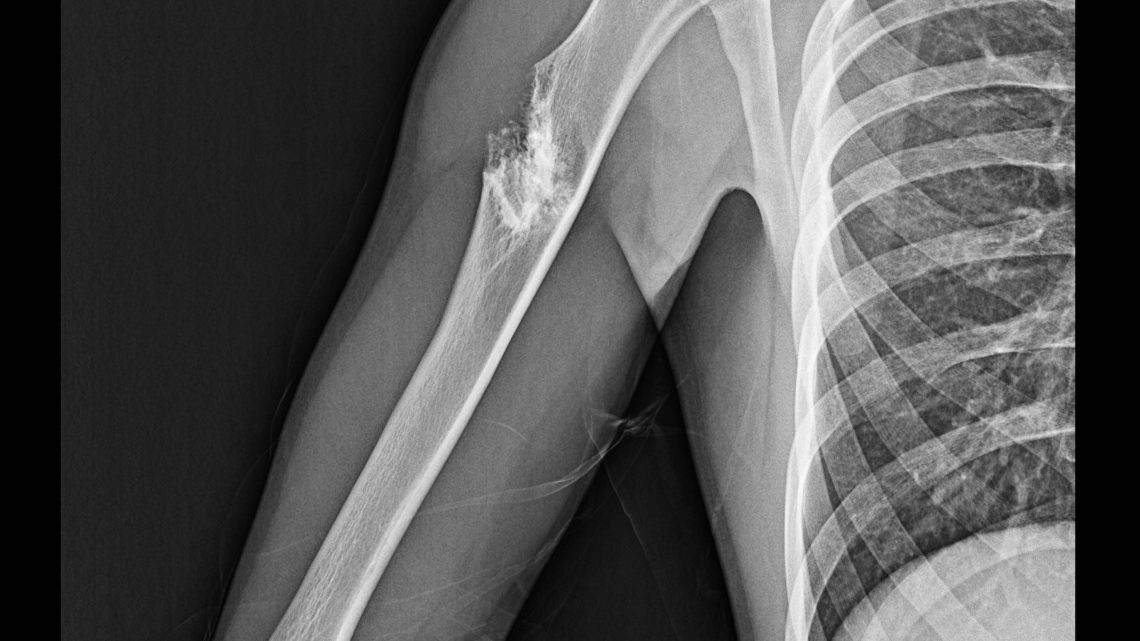Man versus concrete: who wins?
SNAP!
That question was answered once my shoulder collided with the pavement as my skateboard slid backwards. I pulled myself up to my feet and instantly realized what had happened: I had broken my collarbone. Having never broken a bone before, I didn’t know what to do. All I knew was that I needed medical attention.
I staggered to the cafeteria with my face white as a sheet. After nearly fainting twice, I sat down in a nearby chair. A few minutes later, my friend saw me and rushed me to the nearest Urgent Care. Once the adrenaline wore off, all I could think about was the searing pain in my shoulder. The nurse helped me back into the X-ray room. The radiologist took one X-ray and then said she needed to take another of my arm.
“But it’s my shoulder that’s injured.”
“Yes, but I’m seeing something weird in the arm too.”
“Alright.” I didn’t think much of it. All I could think about at this point was my collarbone.
After I was done getting X-rays, I was taken to the examining room. The physician’s assistant walked in to tell me what they saw: “So you’ve definitely broken your collarbone.” This confirmed what I already knew. The next thing she said sent shockwaves through me. “Well, we found a tumor in your right arm.”
Everything after that was a blur. All I remembered was the PA explaining to me what I should do next. I went into a panic and called my parents to make them aware of this crisis. Another friend picked me up and took me back to the dorm and I was still panicking. All I could think about were the what-ifs.
What if it is cancer?
What if I have to drop out?
What if I lose my arm?
What if I die?
Everyone was busy talking about next semester; meanwhile, I didn’t know if I was still going to be around.
Fortunately for me, I had a very good group of friends who were there for me when I needed them most. They got me to my orthopedic appointments, where I experienced a tiny bit of relief when I was told my collarbone would heal without surgery. They all spent time with me to help take my mind off the cancer side of things. They helped me to accomplish tasks that I wasn’t able to do with my arm as messed up as it was.
A week and an MRI later, it was time for me to go to oncology and get a diagnosis for the tumor in my arm. My parents and I went to Omaha, Nebraska, to the only orthopedic oncologist in the state. We were seated in the examination room, and I almost went into another panic just thinking about what the doctor was about to say.
After what seemed like an eternity of waiting, the doctor came in and started discussing the tumor. He then said the following words: “I’m very confident that this is benign.”
My dad and I let out a simultaneous, relieved “Thank God.” The relief hit my mom so hard that she almost threw up. The doctor continued: “We’ll get you an MRI every three months for the next year to be sure nothing changes.”
Sometimes life throws unexpected things at us at the worst possible times. What makes these uncertainties bearable is how we choose to navigate through them. In my case, I had a very good support system that carried me through the toughest week of my life. When dealing with uncertainty, it is important to avoid falling into the trap of what-ifs. Everything just might turn out all right.
Evan Majors is a sophomore English and communication major from Lincoln, Nebraska.
Photo caption: X-ray of my bone tumor and clavicle fracture, April 4, 2022









